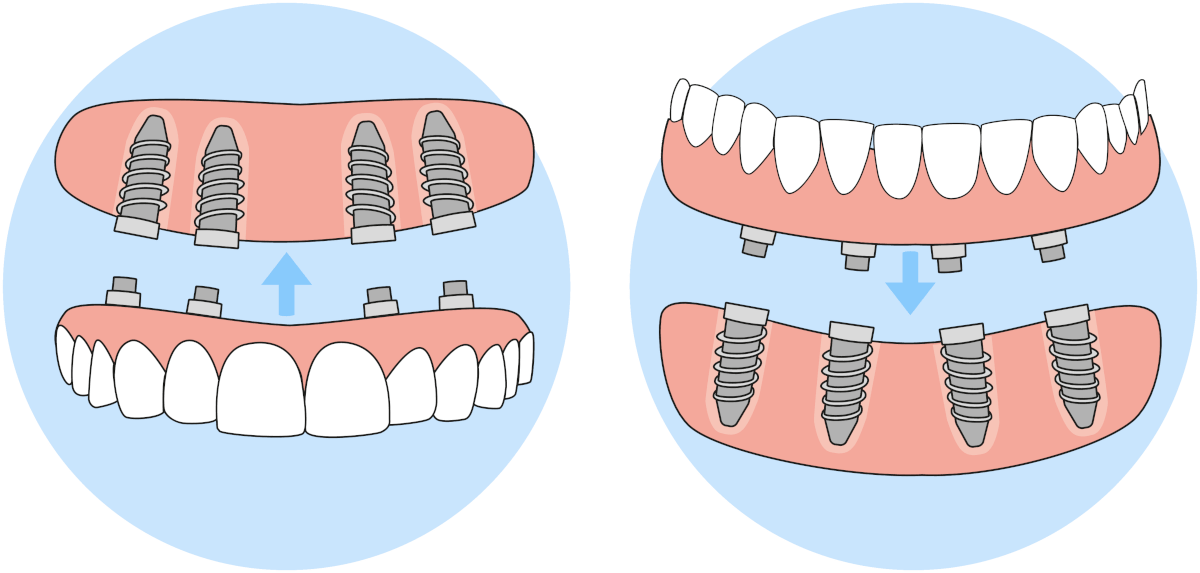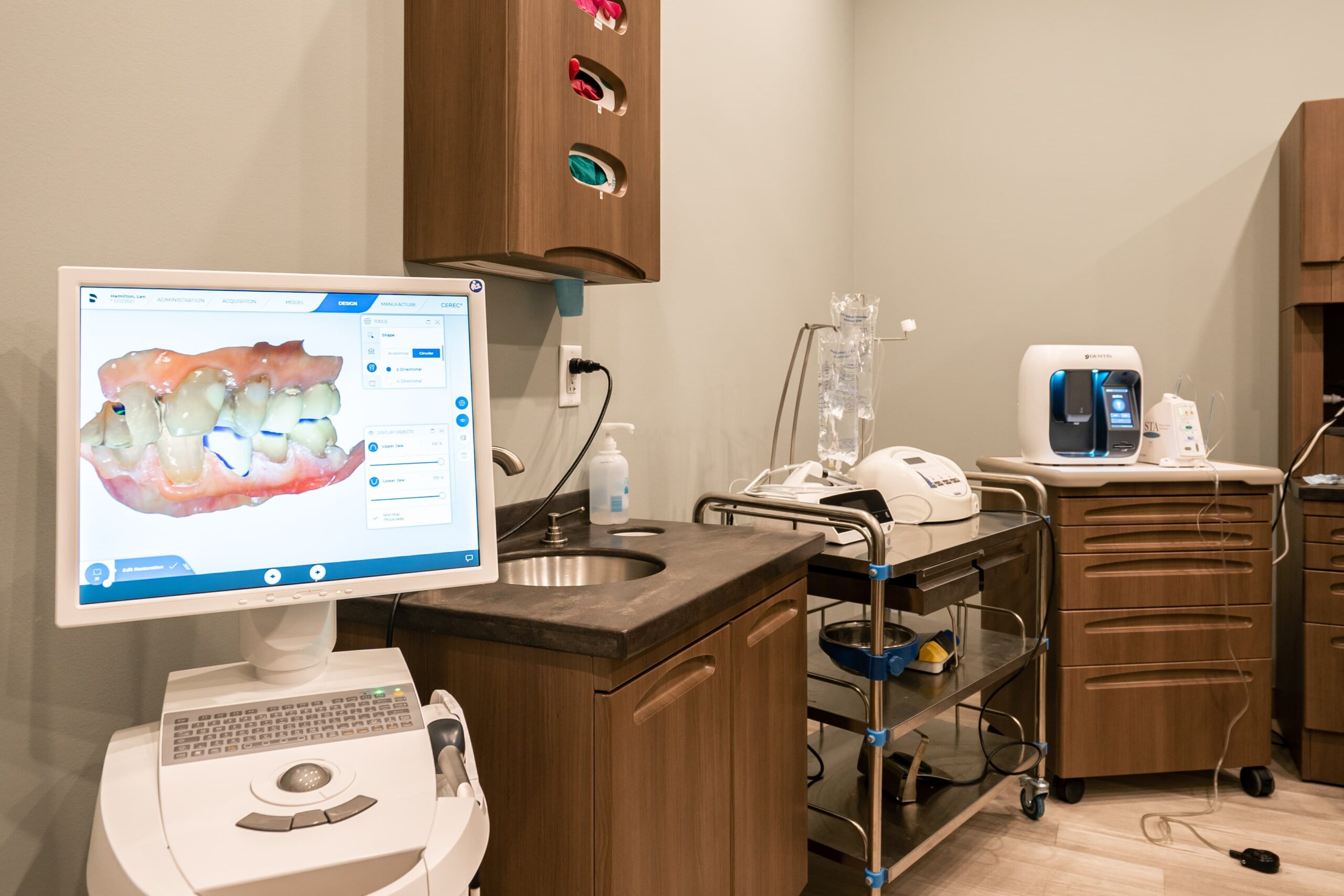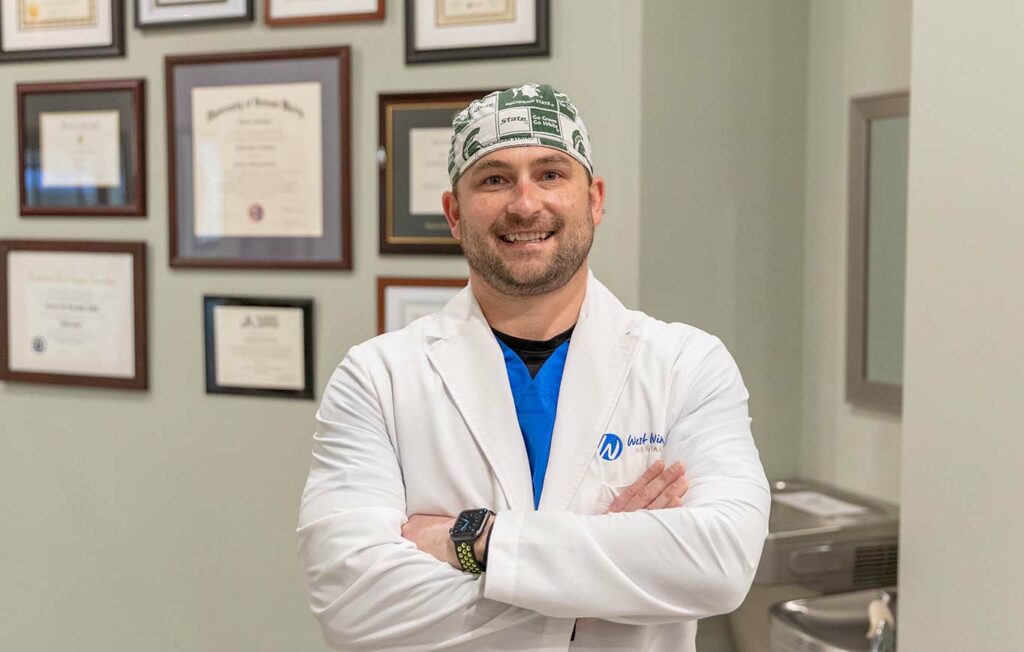5 Things to Know if You’re Ready for New Teeth Now
If you’re interested in getting new teeth now, you probably have a lot of questions. Is the procedure safe? Will your new teeth look natural? Are dental implants reliable? Luckily, you’ve found the blog of the premier provider of dental implants in Kalamazoo.
At West Wind Dental, we don’t just place implants; we help people get their lives back. Whether you’re sick of dealing with missing teeth, tired of your dentures slipping at dinner, or just want to stop hiding your smile, we get it. Implant dentistry isn’t something people jump into overnight. Most of our patients come in with questions, nerves, and a little hesitation. That’s normal. But we’ve seen firsthand what a huge difference it makes. People leave our office smiling more, eating better, and finally feeling like themselves again.
And if you’ve been putting off tooth replacement because of fear, confusion, or outdated info, trust us, you’re not alone. Many people don’t realize how much oral health impacts the rest of the body, or that dental implant procedures have become one of the most predictable and effective treatments in modern dentistry.
So, if you’re still on the fence about implants, we’ve created a list of five things you’ll want to know before embarking on your journey. Of course, if you still have questions after reading, please don’t hesitate to give us a call.
Is Dental Implant Surgery Safe?
While dental implant surgery does involve implanting posts into the jawbone, it’s a routine procedure that has been completed by countless surgeons. In fact, studies have shown that 90%–95% of dental implants are still successful after ten years. If you’re in good health, you’re likely a great candidate for implants.
And, if you’re concerned about pain, you’ll be relieved to know that anesthesia will ensure that your procedure is pain-free. Of course, there may be some discomfort and bruising after the procedure, but it can be managed and alleviated with a combination of medication and temporary dietary adjustments.
This type of minor surgery is most often performed in a standard dental office, though more complex cases may involve a referral to an oral and maxillofacial surgeon. For example, if you have a complicated medical history or are replacing teeth in the upper jaw, your dentist might team up with a specialist to ensure everything goes smoothly.
Depending on your situation, you may receive local anesthesia, IV sedation, or in some cases, general anesthesia. Your dentist will walk through the best approach based on your comfort level and health background.
The healing process starts right away and is closely monitored throughout. Most patients say the experience is much easier than expected, and the results speak for themselves.
Will Dental Implants Feel Like Real Teeth?
Attached with titanium screws, dental implants are securely fixed to your jawbone. Just like the roots of your natural teeth, the implants’ titanium screws give them strength, durability, and stability. In most cases, you’ll be able to enjoy all the foods you’ve always wanted.
Even better, deciding to get new teeth now is a great way to restore your original smile. As we age, teeth can shift, loosen, decay, and fall out. This degradation is often exacerbated by poor dental hygiene routines. But, you can rest assured that dental implants will give you back the smile that you used to have… or always wanted!
What makes implants so unique is how seamlessly they blend in with your existing teeth. The artificial tooth, usually a porcelain crown, is color-matched and shaped to fit your bite and facial structure. Whether you’re replacing one tooth or working toward a complete mouth restoration, the result feels and functions like it belongs there.
Unlike dentures that sit on top of the gums or porcelain veneers that only cover the front of teeth, implants are surgically embedded into the jawbone. This makes them a long-term solution that won’t shift, click, or slip out of place.

And because they stimulate the jaw just like real tooth roots, implant-supported teeth also help preserve your facial shape and prevent bone loss in the jaw over time. That means a stronger bite and a more youthful, defined appearance, without worrying about replacements every few years.
Can an Artificial Tooth Improve Your Health?
Healthy teeth are an important step toward maintaining a healthy diet. For this reason, dental implants can help to avoid conditions like cardiovascular disease, diabetes, and osteoporosis. When you regain your teeth, you also regain your ability to bite, chew, and eat foods that are crucial to a balanced diet.
But it’s not just about food. Replacing missing teeth with a stable, artificial tooth can protect your long-term oral health too. When a tooth is lost and not replaced, surrounding teeth can shift out of place, creating bite problems and putting pressure on your jaw. Over time, this can lead to periodontal disease, joint pain, and even bone loss in the jaw.
Implants help prevent that. Because the titanium post fuses directly with your jawbone, it keeps the bone stimulated and strong, just like a real tooth root would. This stops the chain reaction of bone deterioration that often follows tooth loss.
There’s also the confidence factor. People who feel good about their smile are more likely to engage socially, smile more often, and take better care of their overall health. For many patients, that emotional boost is just as life-changing as the physical benefits.
Whether you’re replacing one tooth or having full mouth restorations, restoring your smile with implant dentistry is one of the most impactful decisions you can make for your total health, inside and out.
How to Care for Your Dental Implants
Because they’re not affected by the usual causes of tooth decay, dental implants don’t get cavities or exhibit the typical signs of enamel breakdown. But that doesn’t mean they’re maintenance-free. Just like your natural teeth, implants rely on healthy gums and proper cleaning habits to stay strong over time.
If you take care of your new teeth, they could last you a lifetime. Most implant complications come from poor oral hygiene or skipping regular checkups; not from the implant itself. That’s why keeping a consistent routine is the best way to protect your investment.
For the most part, your usual dental care routine will suffice when taking care of your dental implants. But a few small tweaks can make a big difference, especially when it comes to preventing plaque buildup around the implant crown or posts.
To protect your teeth and your dental health, you should…
- Brush your dental implants twice per day using a soft-bristled toothbrush
- Floss your teeth after you brush to remove particles from between implants
- Clean under your implants with a Waterpik or a similar water flosser
- Rinse with an antibacterial mouthwash to kill bacteria and support gum health
Avoiding tobacco, staying on top of professional cleanings, and following your dentist’s follow-up care instructions are also key. If you’re ever unsure whether a product is implant-safe, just bring it to your appointment, we’ll walk you through it.
With the right care, your implants can remain secure, clean, and fully functional for decades. No adhesives, no slipping, and no surprises.
Understanding the Dental Implant Procedure
If you’re ready for new teeth now, it helps to know what goes into the process. While every case is a little different, most dental implant procedures follow the same general steps, from planning to healing.
'The implants were surprisingly easy! He explains everything.'
-Kitty, a patient at West Wind Dental
Below, we’ve broken it down into bite-sized pieces so you know what to expect before, during, and after your appointment.
What Is Implant Placement?
This is the part most people think of when they hear “implant surgery.” During this step, a small titanium post is placed directly into your jawbone. This post acts like the root of a natural tooth and gives your new artificial tooth a stable foundation.
The procedure is done in your dentist’s office, and you’ll be numbed with local anesthesia or offered sedation options depending on your case. Healing begins immediately, and over time, the implant fuses with your bone, a process called osseointegration.
Will I Need Bone Grafting?
Not everyone does, but some patients don’t have enough healthy bone to support an implant right away. If that’s the case, your dentist may recommend bone grafting to build up the jaw and create a solid base for your implant.
It sounds intense, but it’s a standard and safe procedure, primarily when performed by trained implant professionals. If grafting is needed, it will extend your overall timeline a bit, but it’s worth it for a more secure, long-lasting result.
Do I Need General Anesthesia?
In most cases, no. Dental implant procedures are typically done using local anesthesia, which numbs the area but lets you stay awake and alert. For patients who feel especially anxious or are having multiple implants placed, IV sedation or even general anesthesia may be available. Your dentist will talk through the best option for you based on your medical history and comfort level.
What Happens After Surgery?
After the implant placement, your body gets to work. Healing can take a few months, depending on how your bone fuses with the implant. During this time, a temporary tooth or healing cap may be placed to protect the area. Once the implant is fully integrated, your permanent artificial tooth, usually a crown, is added on top.
After that? Just follow your dentist’s instructions for follow-up care, keep up your hygiene routine, and enjoy your new smile.

Yes, You Really Can Get New Teeth Now
At West Wind Dental, we know that getting new teeth can feel like a big step. But with years of experience and some of Kalamazoo’s most advanced implant dentistry tools, we make the process as smooth, and successful, as possible.
Whether you need to replace one tooth or you’re thinking about a full-mouth transformation, we’ll build a treatment plan around your goals, timeline, and health. We’ve helped hundreds of patients restore their smile, their bite, and their confidence, and we’d love to help you do the same.
Still have questions? Just give us a call or schedule a consultation. Your new smile might be closer than you think.

Dr. Andrew Hamilton, DDS, FAGD
Dr. Hamilton is an active member of several professional organizations including the American Dental Association (ADA), the Michigan Dental Association (MDA), the Kalamazoo Valley District Dental Society (KVDDS), the American Academy of Implant dentistry (AAID), the International Academy of Facial Aesthetics (IAFA) and also attends courses with the Pikos Institute in Northwest Florida. He is a member of the International Congress of Oral Implantologists (ICIO), has achieved fellowship status in the International Dental Implant Association (IDIA) and in the Academy of General Dentistry (FAGD), has graduated from and is an alumnus of the Kois Center program in Seattle, and is on the faculty of the Global Dental Implant Academy (GDIA).
The little spare time left over is spent Steelhead and Salmon fishing and the occasional round of golf.
